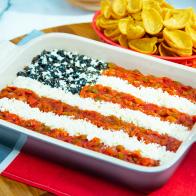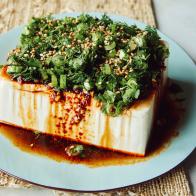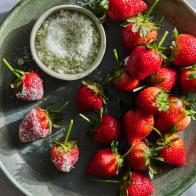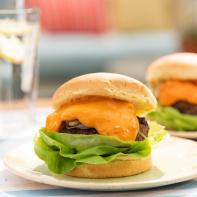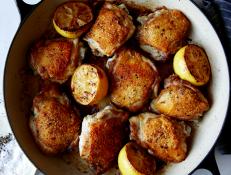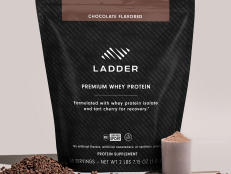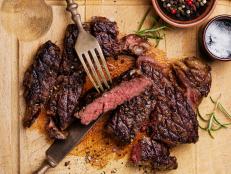7 Best Ready-to-Drink Protein Shakes, According to a Dietitian
A dietitian and certified athletic trainer shares her top picks for packaged post-workout protein shakes.

Photo by Ghost Protein c/o Amazon
Our Top Protein Shake Picks
Protein is an important macronutrient for active adults, and while supplementation isn’t always recommended, sometimes it’s necessary after an intense workout. If you need a grab-and-go option for a satisfying snack or post workout fuel, ready-to-drink protein shakes can be an easy way to get the calories and protein you need without whipping up a whole meal. These protein shakes are ready when you are — no blending or scoops of powder required.
How We Picked These Protein Shakes
We looked for a protein shake with high-quality protein from milk, whey, pea or soy. Keep the added sugar to a reasonable 10 grams or less per serving — you’ll need some for flavor! Most brands are packaged in shelf-stable bottles or boxes and can be stored in the pantry, but they are all much tastier when served cold, so be sure to chill before drinking.
- Delicious flavor
- Lactose free
- Widely available
- Uses multiple artificial sweeteners
Core Power is made from using Fairlife ultra-filtered milk, which is a process that removes lactose and other sugars from the milk and concentrates the protein and calcium. These handy shakes offer 26 grams of protein and come in three lactose-free flavors, which we can attest all taste great. Plus, you’ll love the creaminess.
- Protein Type Filtered low fat milk
- Protein Per Serving 26 grams
- Calories Per Serving 170 calories
- Fun flavors include Root Beer Float, Cookie Dough and Salted Caramel Popcorn
- Contains high doses of extra vitamins and minerals you may not want or need
From Root Beer Float to Cake Batter Delight, there’s something for every palette with Premier Protein’s extensive line of flavored protein shakes. These tasty shakes each clock in at 160 calories, 30 grams of protein and 1 gram of sugar per serving.
- Protein Type Milk protein concentrate
- Protein Per Serving 30 grams
- Calories Per Serving 160 calories
- Very affordable
- No added sugar
- Smaller than other shakes — serving size is 8 fl. oz.
No added sugar and 16 grams of protein make this milk-based shake a moderate carb (15g) option for diabetic-friendly snacks and post-workout recovery. It is also fortified with ample doses of vitamins D, C, B12 as well as calcium and magnesium.
- Protein Type Filtered milk pro
- Protein Per Serving 16 grams
- Calories Per Serving 170 calories
- Contains 5 grams of fiber per serving
- Prices vary so shop around to get the best deal
OWYN stands for “Only What You Need” and this plant-based shake delivers 180 calories, 20 grams of protein (from a blend of pea, pumpkin seed and flax proteins) and 5 grams of fiber per serving.
- Protein Type Blend of pea, pumpkin seed and flax oil
- Protein Per Serving 20 grams
- Calories Per Serving 180 calories
- Affordable, reliable and respected brand
- Limited flavors, thin consistency
Muscle Milk is an old school shake for athletes that has stood the test of time. Vanilla, chocolate and strawberry Muscle Milk contain 32 grams of protein per serving which is the most bang for your buck on ready-to-drink shakes, which often come at a higher price.
- Protein Type Milk protein isolate
- Protein Per Serving 32 grams per serving
- Calories Per Serving 170 calories
- Simple ingredients
- Limited flavors
- Higher price
Ripple was the first brand to introduce pea milk to the market and they make another stellar plant-based protein shake made from pea protein, cane sugar and flavorings. Twenty grams of protein, plus carbs, sodium and potassium make this shake a great option to replenish losses from exercise.
- Protein Type Pea protein
- Protein Per Serving 20 grams
- Calories Per Serving 200 calories
- Lower calories
- Great flavor
- Harder to find in some areas
Coming in at 100-120 calories per serving, Slate Milk is one of the lowest calorie options we recommend for protein shakes on the market. Plus, with just 1 gram of sugar per can, it's a solid bet for those keeping their sugar intake in check. These cans com in chocolate, dark chocolate and mocha latte flavors.
- Protein Type Ultra filtered skim milk
- Protein Per Serving 20 grams
- Calories Per Serving 100 calories
FAQs
How do I choose the right protein shake?
Look for a ready-to-drink (RTD) protein shake with high quality protein from milk, whey or soy or a plant-based protein blend with all essential amino acids. Keep the added sugar reasonable at less than 10 grams per serving – some for flavor and post workout replenishment carbohydrate is recommended! Some brands will use artificial sweeteners like stevia, sucralose or monk fruit (or a combination of added sugar and artificial sweeteners) to lower the calorie and carb count. Most shakes are packaged in shelf stable bottles or boxes and can be stored in the pantry, but they are all much tastier when served cold so be sure to chill before drinking.
When should I drink a protein shake?
Protein shakes offer quick and convenient options for re-fueling and re-hydrating on the go. While not a meal replacement, RTD protein shakes off a mix of protein, carbs, fluid and other nutrients, making them a great choice for post-workout recovery, a satisfying mid-day snack or a quick delivery of nutrients to fight a sugar craving later in the evening. As an added bonus, a dose of protein before bed can help to promote muscle recovery during your slumber.
Is protein powder or a protein shake healthier?
There is no one-size-fits all protein powder or protein shake which is why it is so important to check labels and ingredients lists to know what each brand, type and flavor contains. You will find variations in calories, protein sources, sweeteners and vitamin and mineral content so you cannot assume you know what a shake contains without checking the label and ingredient list. Some RTD protein shakes are also sold as dietary supplements so ingredients may not be accurate or appropriately disclosed unless it has third party testing to verify. You can identify shakes that are classified as supplements by the “Supplement Facts Panel” on the back. Shakes with a “Nutrition Facts Panel” have undergone FDA evaluation for label accuracy.
RTD protein shakes provide convenience and speed – there is no mixing with water, no shaker bottles or fumbling to clean after use. On the other hand, protein powders are light weight, have a longer shelf life and are oftentimes more affordable.
Both shakes and powders can offer versatility in terms of use. Either can be added as an ingredient to smoothies, oatmeal, chia pudding and baked goods.
Dana Angelo White, MS, RD, ATC, is a registered dietitian, certified athletic trainer and owner of Dana White Nutrition, Inc., which specializes in culinary and sports nutrition. She is the author of four cookbooks First Bites: Superfoods for Babies and Toddlers, The Healthy Air Fryer Cookbook, The Healthy Instant Pot Cookbook and Healthy Quick and Easy Smoothies.
*This article was written and/or reviewed by an independent registered dietitian nutritionist.
Related Content:
